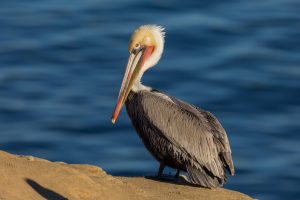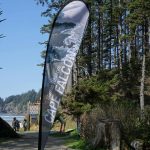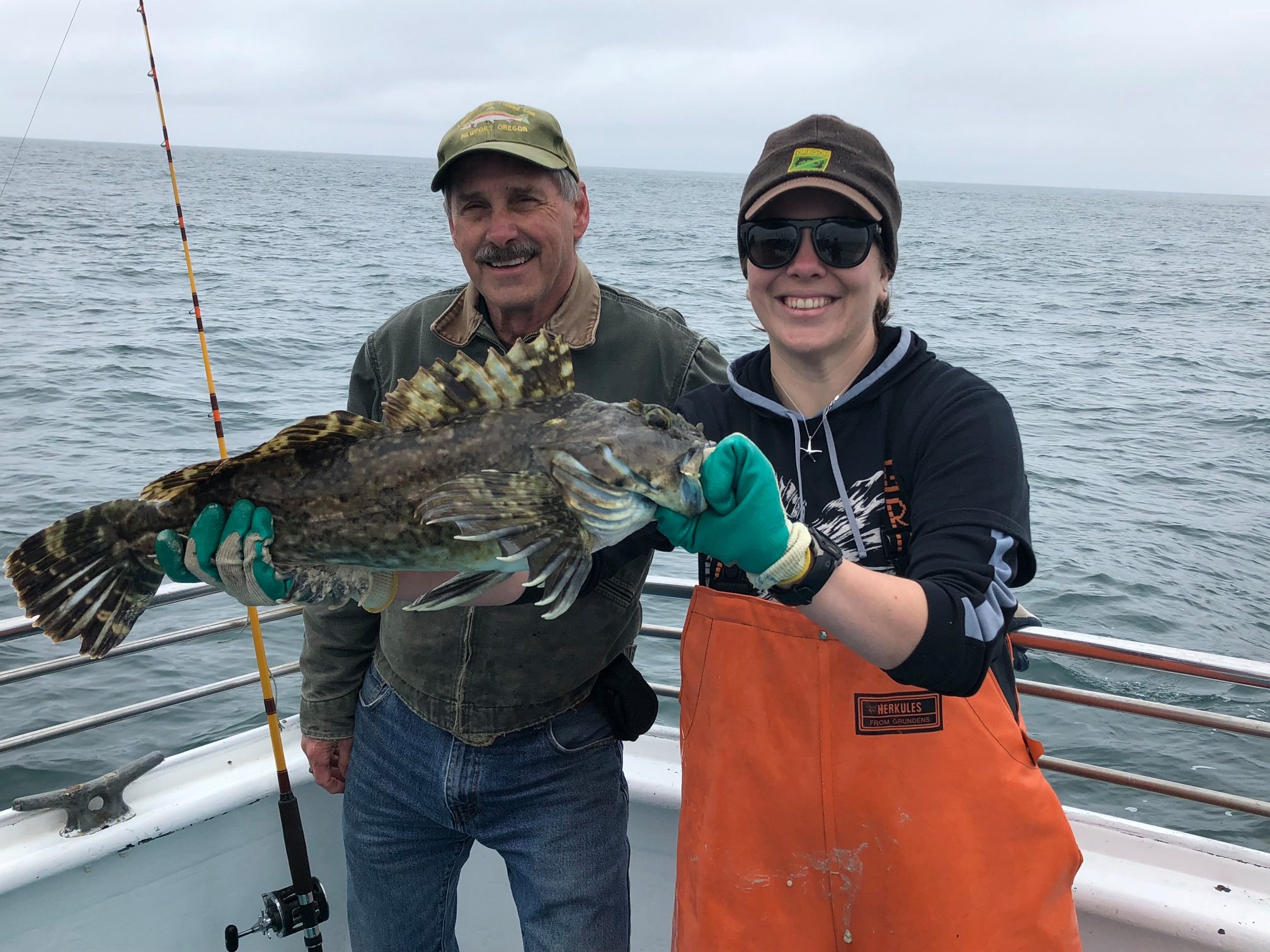During 2019, scientific studies conducted at Cape Falcon Marine Reserve shed light on the state of Oregon’s nearshore ocean environment and wildlife. The ongoing work of researchers and local volunteers to carry out a variety of studies and projects allows everyone to see the work being done to strengthen the connection between life on land and under the water.
Oregon Department of Fish & Wildlife (ODFW) scientists and volunteer anglers completed hook and line surveys at Cape Falcon Marine Reserve for the fourth time since 2014. Hook and line surveys are meant to show any changes in relative abundance of nearshore fish species over time. The long-term datasets that ODFW is building from ongoing monitoring will allow researchers to track and differentiate changes due to natural variation versus those due to marine reserve protections. It’s also a fun way for anglers to participate in scientific research. This year, the largest fish caught was a 45-inch-long Lingcod and the most commonly caught fish species was Black Rockfish.
In a joint Oregon State University/NOAA study on Dungeness crab, researchers found that the crabs travel long distances, but tend to linger in the rocky reefs of Cape Falcon Marine Reserve, likely because there is more food for them there. The study also shows that Dungeness crabs will range an average of 11.5 miles, and some extend that range to more than 50 miles! The study also revealed the presence of great white sharks in the marine reserve.
The Friends of Cape Falcon Marine Reserve, continuing a partnership with Portland Audubon, monitored 35 cormorant nests at Devil’s Cauldron in Oswald West State Park from June through September. Breeding success (average fledglings per nest) was relatively low in 2019, with one or fewer fledglings per nest. Many factors can affect breeding success including weather events, food availability, and predation. In 2019, there was an increase in observed bird predator disturbances, resulting in lost eggs for all cormorant species. Early summer storms, unusually warm ocean temperatures, and late summer heat waves may have also contributed to the low numbers.

The Friends, in conjunction with Portland Audubon and Oregon Department of Fish and Wildlife, continued participation in two Pelican surveys in spring and fall. The goal of the survey is to help define distribution and abundance of Brown Pelicans and track shifts in population structure. Cape Falcon Marine Reserve was one of 84 out of 119 known roost sites that were monitored across the West Coast from Baja, California to Washington by 152 volunteers. In all, a total of 10,829 Brown
Pelicans were counted during the survey combined. In 2020, pelican surveys will take place at Cape Falcon Marine Reserve on May 9 and September 12.
Interested in helping with our annual bird surveys? The Friends will be offering plenty of opportunities to get involved in a number of locations:
Snowy Plover Patrol
Training: Sat. April 4 or 18, 10 am – 2 pm
Nehalem Bay State Park
Black Oystercatcher Monitoring
Training: Sat., May 2, 10 am – noon
Cannon Beach City Hall
Seabird Monitoring
Training: Sat., Jun 6, 10 am – noon
Cannon Beach City Hall
Pelican Surveys
Sat., May 9, 5 – 7 pm
Sat., Sept. 12, 5 – 7 pm
No advance training required
Location: contact jliebezeit@audubonportland.org

About Friends of Cape Falcon Marine Reserve
The Friends of Cape Falcon Marine Reserve are volunteer citizens and organizations working to increase understanding of and grow appreciation for Cape Falcon Marine Reserve, located in Oregon’s ocean between Manzanita and Cannon Beach. They coordinate education events, engage the community in reserve management planning and implementation, and promote scientific research through community science projects related to the reserve. In these efforts, the Friends of Cape Falcon play a critical role in fostering and maintaining local support of the Cape Falcon Marine Reserve specifically and Oregon’s marine reserves system in general. Learn more about the Friends by visiting http://www.nehalemtrust.org/capefalconmr or by contacting Margaret Minnick at capefalconmr@gmail.com or (503) 298-5190.


